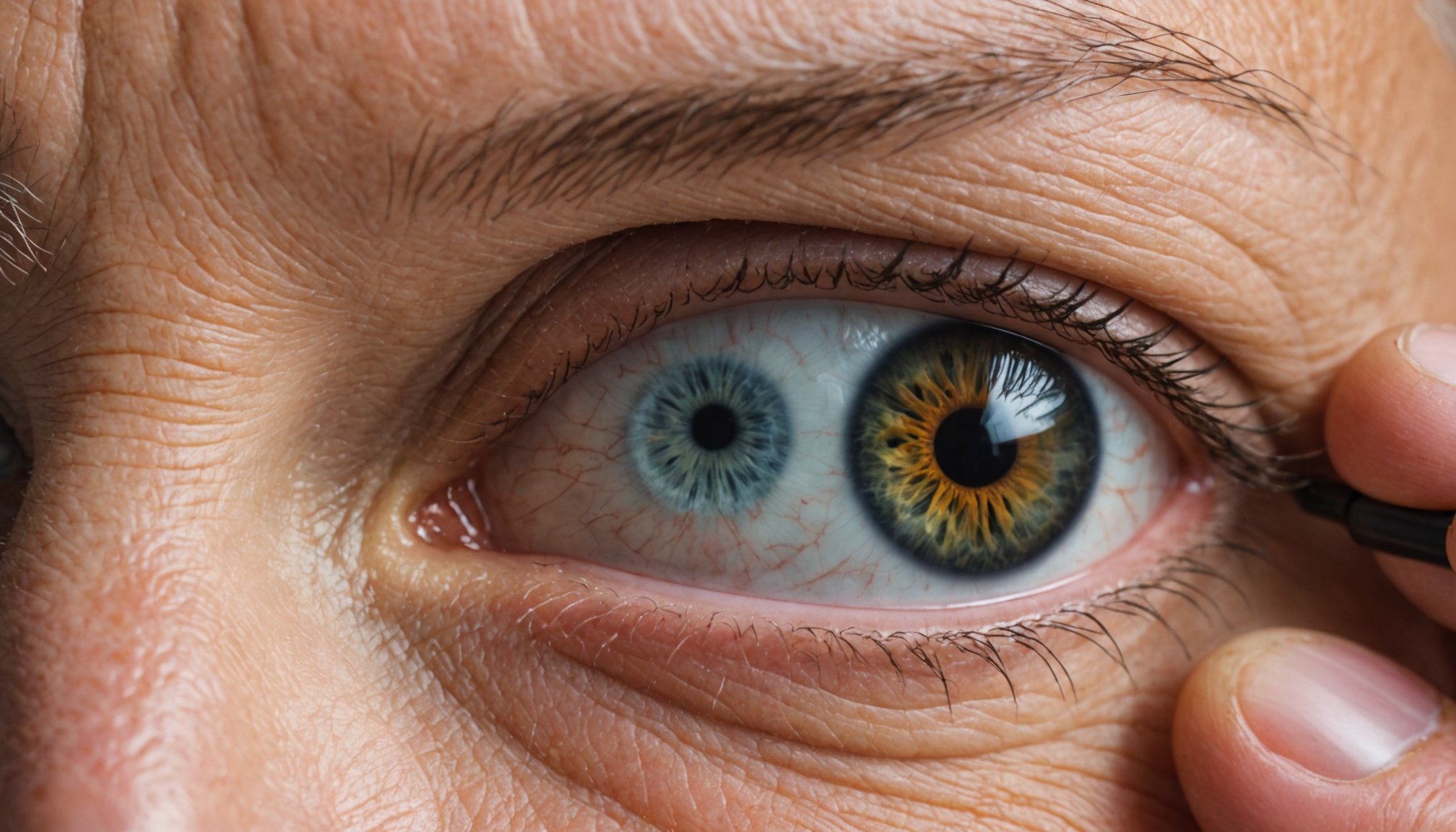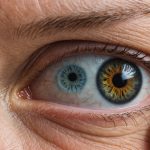As we age, eye health becomes increasingly vital, especially for preventing glaucoma – a leading cause of vision loss. Regular eye exams help catch this insidious condition early, allowing for more effective management. Seniors need a tailored exam schedule to safeguard their vision. This guide breaks down the essential eye exam timeline and presents practical steps to ensure optimal monitoring. Empower yourself and your loved ones with the knowledge to maintain eye health and preserve quality of life.
Importance of Regular Eye Exams for Seniors
Regular eye exams for seniors are crucial for maintaining vision health and preventing conditions like glaucoma. Glaucoma is a group of eye diseases that can cause vision loss and blindness by damaging the optic nerve. It's particularly concerning for seniors, as the risk increases with age.
Also to discover : Smart Winter Warmth: Essential Home Adjustments for Elderly Residents in the UK
Early detection is vital in preventing vision loss. Many seniors may not realize they have glaucoma until significant damage has occurred, as it often presents no symptoms in its early stages. Regular eye exams can catch these issues before they lead to irreversible harm.
Impact of Glaucoma on Seniors' Vision
Understanding the prevalence and impact of glaucoma on seniors can highlight the importance of regular check-ups:
Also to see : Discover authentic relationships on top dating platforms for 50+
- Statistics indicate that over 3 million Americans have glaucoma, with a significant portion being older adults.
- Seniors are at a higher risk due to age-related changes in eye health.
- Timely intervention through regular eye exams can prevent up to 90% of glaucoma-related vision loss.
Incorporating these exams into routine healthcare for seniors not only supports vision health but also enhances their quality of life by preserving their independence and ability to engage in daily activities. Prioritizing eye health ensures seniors can enjoy their golden years with clarity and confidence.
Recommended Eye Exam Schedule for Seniors
Understanding the importance of a structured eye exam schedule is crucial for maintaining senior eye care, especially in monitoring conditions like glaucoma.
General Guidelines for Eye Exam Frequency
Regular eye exams are essential for seniors. The American Academy of Ophthalmology suggests that adults aged 65 and older should have a comprehensive eye exam every one to two years. This frequency helps in early detection and management of eye conditions such as glaucoma.
Specific Recommendations for Seniors with Risk Factors
Seniors with specific risk factors, such as a family history of glaucoma or other eye conditions, may require more frequent exams. For these individuals, annual or even bi-annual exams are recommended to ensure any changes in eye health are monitored closely.
Adjustments Based on Individual Health Conditions
Age-related considerations play a significant role in determining the eye exam schedule. Conditions like diabetes or hypertension can further necessitate adjustments in the frequency of exams. A personalized approach to senior eye care can be beneficial, taking into account both the individual's health conditions and family history.
- Key Factors:
- Age
- Family history
- Existing health conditions
By adhering to these guidelines, seniors can better manage their eye health and reduce the risk of vision loss.
Recognizing Symptoms of Glaucoma
Understanding the warning signs of glaucoma is essential for maintaining eye health.
Common Symptoms of Glaucoma
Glaucoma often progresses without noticeable symptoms until significant damage has occurred. However, there are certain glaucoma symptoms one should be vigilant about:
- Gradual loss of peripheral vision, often in both eyes
- Tunnel vision in advanced stages
- Severe eye pain
- Nausea and vomiting (accompanying severe eye pain)
- Sudden onset of visual disturbances, especially in low light
Importance of Reporting Vision Changes
Promptly reporting any vision changes to healthcare providers can be crucial in managing glaucoma. Early detection through awareness of these symptoms can lead to timely intervention and treatment, potentially preserving vision.
Role of Self-Monitoring in Eye Health
Self-monitoring plays a vital role in eye health. Regularly checking for warning signs and being proactive about any unusual symptoms can empower individuals to seek medical advice sooner. This practice is particularly beneficial for seniors who are at higher risk.
- Self-Monitoring Tips:
- Keep a journal of any vision changes
- Schedule regular eye exams
- Communicate openly with your eye care professional
By staying informed about glaucoma symptoms and acting swiftly, individuals can significantly impact their eye health outcomes.
Recommendations from Health Authorities
Understanding expert advice is crucial for effective eye care.
American Academy of Ophthalmology Guidelines
The American Academy of Ophthalmology emphasizes the importance of regular eye exams, especially for seniors. Their guidelines suggest comprehensive exams every one to two years for individuals aged 65 and older. This frequency aids in early detection of conditions like glaucoma, ensuring timely intervention. Adhering to these guidelines is vital for maintaining eye health and preventing vision loss.
National Eye Institute Recommendations
The National Eye Institute also provides valuable eye care advice. They recommend regular screenings and emphasize awareness of glaucoma symptoms. Their guidelines encourage seniors to engage in self-monitoring and report any changes in vision promptly. By following these recommendations, seniors can better manage their eye health and reduce the risk of complications.
Importance of Following Professional Advice
Trustworthy sources for eye care information, such as health authorities, play a significant role in guiding individuals. Following professional advice can lead to better health outcomes and prevent unnecessary vision loss. It's essential to consult with eye care professionals regularly and adhere to their glaucoma recommendations.
- Key Points:
- Regular eye exams
- Awareness of symptoms
- Consultation with professionals
By prioritizing these guidelines, seniors can maintain their vision health effectively.
Tips for Seniors to Proactively Manage Eye Health
Empowering seniors to take charge of their eye health.
Lifestyle Changes to Support Eye Health
Making lifestyle changes can significantly impact proactive eye care for seniors. Engaging in regular physical activity, such as walking or yoga, helps improve blood circulation, including to the eyes, reducing risks of eye diseases. Additionally, wearing protective eyewear when outdoors shields eyes from harmful UV rays.
Importance of Nutrition and Hydration for Vision
A balanced diet rich in vitamins and nutrients is essential for maintaining eye health. Include foods high in omega-3 fatty acids, like salmon, and antioxidants, such as leafy greens and carrots, to support vision. Staying hydrated is equally important, as it helps maintain moisture in the eyes, preventing dryness and irritation.
Key Nutrients for Eye Health:
- Vitamin A
- Omega-3 fatty acids
- Lutein and zeaxanthin
Regular Communication with Healthcare Providers
Maintaining open communication with healthcare providers is crucial in eye health management. Seniors should schedule regular check-ups and discuss any vision changes promptly. This proactive approach ensures timely interventions and tailored advice on maintaining eye health.
By integrating these senior health tips into daily routines, seniors can effectively manage their eye health, reducing the risk of vision-related issues and enhancing their overall quality of life.
Understanding the Costs and Accessibility of Eye Exams
Exploring financial aspects of senior eye care.
Average Costs of Eye Exams for Seniors
The average costs of eye exams can vary significantly, impacting healthcare accessibility for seniors. On average, a comprehensive eye exam for seniors ranges from $50 to $250, depending on the provider and location. These costs can be a barrier, especially for those on a fixed income, highlighting the need for affordable options in senior eye care.
Insurance Coverage for Eye Care
Insurance plays a crucial role in making eye exam costs manageable. Medicare, for example, does not typically cover routine eye exams but may cover exams related to specific conditions such as glaucoma. Supplemental insurance plans can offer additional coverage, easing the financial burden and improving healthcare accessibility for seniors.
Resources for Low-Income Seniors
For low-income seniors, various community programs and assistance initiatives provide support. Organizations like Lions Clubs International and Vision USA offer free or low-cost eye exams, enhancing senior eye care accessibility. These resources are vital for ensuring all seniors have access to necessary eye health services.
- Key Resources:
- Community health clinics
- Nonprofit organizations
- Senior assistance programs
By leveraging these resources, seniors can better manage their eye health without financial strain, ensuring comprehensive and accessible care.
Conclusion and Call to Action
Empowering seniors to prioritize their eye health.
Making Eye Exams a Priority
Prioritizing eye health awareness is crucial for seniors. Regular eye exams are not just routine check-ups; they are a proactive step towards glaucoma prevention. By scheduling consistent assessments, seniors can ensure their vision health is monitored, reducing the risk of undetected issues. This practice is vital for maintaining independence and quality of life.
Encouragement to Schedule Regular Check-Ups
Encouraging seniors to schedule regular eye exams is key to effective senior eye care. These check-ups provide an opportunity to detect early signs of glaucoma, allowing for timely intervention. Seniors should be motivated to take charge of their eye health, understanding the long-term benefits of regular monitoring.
Resources for Further Information
Access to comprehensive senior eye care resources is essential. Various organizations offer information on glaucoma prevention and eye health. Seniors can utilize these resources to stay informed and make educated decisions about their eye care.
- Key Resources:
- Eye care professionals
- Community health programs
- Educational materials on eye health
By leveraging these resources, seniors can enhance their eye health awareness, ensuring they are well-equipped to manage their vision health effectively.
















